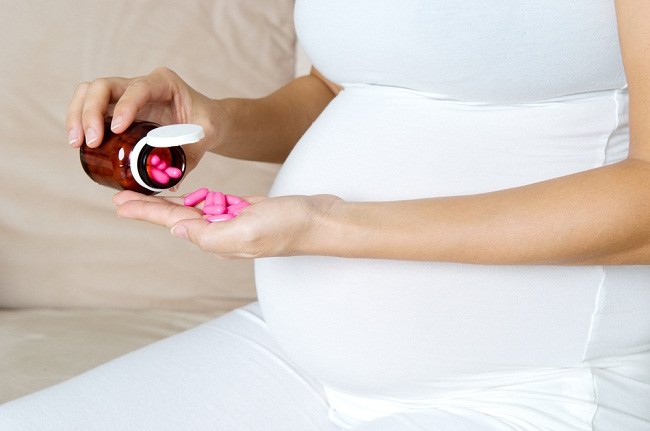Hib vaccine is important to be given to children under five. The goal is so that they avoid dangerous diseases caused by bacterial infections Haemophilus influenzae type b.
Haemophilus influenzae type b (Hib) is a bacterium that can cause infections in various parts of the body, such as the brain, respiratory tract, lungs, bones, to the heart.

Hib bacteria tend to attack children easily because their immune systems are still weak. In addition to children, Hib bacteria can also attack adults with weakened immune systems.
Hib Vaccine Benefits
Hib bacteria infection is usually experienced by children under the age of 5 years, with the highest incidence in infants aged 6-12 months. Therefore, the Hib vaccine is very important given to children.
Based on the provisions of the Ministry of Health of the Republic of Indonesia, the Hib vaccine is one of the basic immunizations that need to be given to infants before the age of 1 year.
This vaccine is given to prevent children from experiencing the following serious diseases:
1. Meningitis
Meningitis is an infection of the membranes that protect the brain and spinal cord. Meningitis is a serious disease that can be caused by Hib bacteria infection.
Children affected by meningitis can experience seizures, permanent brain damage, hearing loss (deafness), impaired growth and development, and even death.
2. Septicemia
Septicemia is a severe infection characterized by the entry of germs into the bloodstream. This condition can trigger sepsis. Children with sepsis may experience symptoms of weakness, refusal to eat and drink, shortness of breath, chills, fever, rash all over the body, and seizures.
3. Epiglottitis
Epiglottitis is an infection of the epiglottis or the valve located in the voice box (larynx) in the throat. Children with epiglottitis may experience symptoms of sore throat, difficulty swallowing, fever, fussiness, hoarseness, wheezing, and profuse salivation.
4. Osteomyelitis
Osteomyelitis is an infection that occurs in the bones, causing the bones to become inflamed which is characterized by swelling and pain. Osteomyelitis can be caused by various types of bacteria, including Hib bacteria.
Hib bacteria can enter the bone through a cut or injury, but it can also spread to other organs. Children who have a bone infection will experience symptoms of severe pain and swelling in the infected body part, a reddish rash, fever, weakness, and difficulty moving.
5. Pericarditis
Pericarditis is an infection of the pericardium or the membrane that surrounds and protects the heart.
Pericarditis can cause a child to experience symptoms in the form of severe chest pain or a feeling of pressure in the chest that appears suddenly with fever and weakness.
6. Pneumonia
Pneumonia is inflammation of one or both lungs due to viral or bacterial infection, including Hib bacteria.
Children with pneumonia may experience several symptoms of cough accompanied by shortness of breath or rapid breathing, chest pain, fever, lack of eating and drinking, and weakness.
7. Septic arthritis
Septic arthritis is an infection that occurs in the joints. Symptoms can include fever with severe pain, redness, and swelling in the infected joint. This joint infection often occurs in the knees, but can also occur in other joints, such as the hips, shoulders, and arms.
8. Cellulitis
Cellulitis is an infection of the skin and underlying tissue. When exposed to cellulitis, the child will experience fever, pain, and swelling and redness of the infected body part.
To prevent children from the various dangerous diseases above, it is important to give children complete immunizations, one of which includes the Hib vaccine.
HiB . Vaccine Administration Schedule
Based on the recommendations of the Indonesian Pediatrician Association (IDAI) in 2017, the Hib vaccine is given to children in 3 stages, namely when the child is 2, 3, and 4 months old. After that, the Hib vaccine can be given again one year later when the child is 15–18 months old.
In adults, the Hib vaccine is recommended to be given to people who have weak immune systems, for example due to HIV infection, a history of surgery to remove the spleen or organ transplant, and sickle cell anemia.
Hib vaccine in adults can be given at any age with a dose of 1–3 doses of the vaccine.
Although it is important to give the Hib vaccine, it may not be recommended for children or adults who have had an allergic reaction to the Hib vaccine or are seriously ill.
Hib Vaccine Side Effects
Like the vaccine in general, the Hib vaccine can also cause side effects, namely fever and pain and swelling at the injection site. However, these side effects are usually only mild and can subside on their own within a few days after the vaccine injection.
Severe allergic reactions can occur after injection of Hib vaccine, but this is very rare.
Immunization with vaccines, including the Hib vaccine, is one of the most important disease prevention measures in children. To get the Hib vaccine, you can take your child to a health center, vaccination clinic, or hospital to get it.
If you have further questions about the Hib vaccine, don't hesitate to consult your pediatrician.









